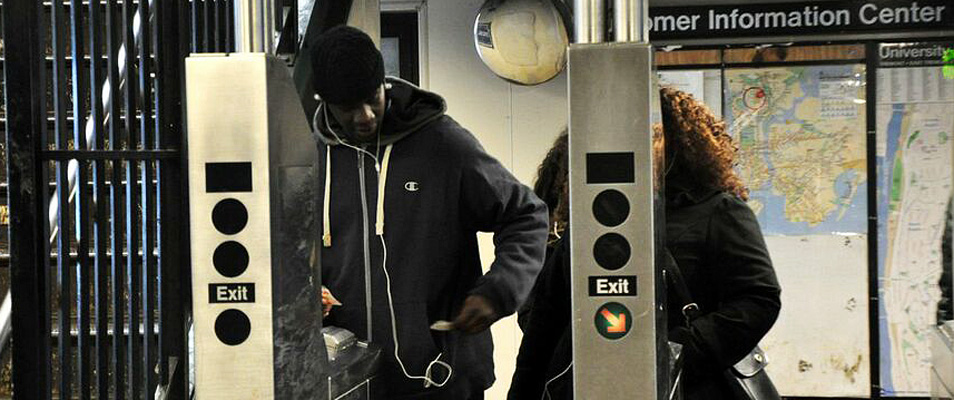By Kristal Lewis
In an expensive city where people go to great lengths to survive, Bronxites are creating new economic lanes for themselves with a little hustle.
Some recycle MTA metro cards, others peddle knick knacks on the street and others hawk candy in the subway. It is an alternative economy with few rules. One appeal for many New Yorkers is the freedom to make their own hours and be their own boss. For others, it is the fact they can make more per hour than the $8.75 minimum wage.
Take for example B.K., a father of six, who works as a MTA metro card swiper.

B.K. offers MTA riders discounted fares on metro cards. He buys used cards from commuters and resells single rides, weekly and monthly cards.
One way he makes a profit is when he buys a weekly or monthly card from someone who gets a discounted rate like school metro cards or reduced fare metro cards. The school metro cards are issued to students from their educational institution, this is where B.K. gets most of his one and two trip cards. He also uses the reduced fare metro cards that are offered to customers with disabilities. With these cards, B.K. pays the cardholders with cash, so they can refill the card at the ticket machines.
The regular price of a 30-day unlimited metro card is $116, but B.K. often only charges $60. He may even give commuters a weekly pass for $25 when the price is $31, just to get rid of it quickly before the card is deactivated. “You don’t want to hold on to this for too long,” he said. “It’s kind of like drugs, you wan to get it and get out of it. The more you stay here, the more people recognize you. You don’t want police to recognize you.”
For single rides, BK just swipes the commuter in for $2, saving them 75 cents.
The swiping life has become easier for B.K., he said, because he has an established clientele.

B.K. usually works everyday, moving from station to station, from 5:30 a.m. until he feels he’s made enough money. He never misses a day, but he makes the most money on Mondays and Saturdays. In an average week, B.K. says he makes about $1400-$1600, $1000 at a minimum.
The tough part of the job is finding the metro cards, said B.K. “The problem is you have to get dirty sometimes. You might have to go inside the trash cans, touch them – you see how dirty the floor is – you might not want to go through that,” he said.
Street vending is another hustle people use to survive.
Hasnah and Mohammad, a mother and son from Bangladesh, have been selling incense, oils, children’s books, religious figures, handmade beads, hats, and other accessories on Fordham Road and Webster Avenue for about eight years.
Mohammad comes to help out when he’s not studying nursing at Hunter College. Depending on the weather, they operate from 9 a.m. to 7:30 p.m., when the other businesses open and close.
It takes two people to transport all of the merchandise and set up the table, so Mohammad comes after class to help his mom close. Mohammad also helps with customer service. He speaks the best English, while his family is still adjusting to the language.
This is the family’s main source of income, however, they don’t have a license to sell. Instead they made a deal with Boo, a vendor who has a license, to give him the space to sell his women’s accessories in exchange for sharing his license so police won’t bother their business.
On an average, if the family works the entire week, they bring in about $500. They says they’re looking to move their business into a store, because the outside vending is too hard on them.
For entrepreneurial teens, candy sales can be quite lucrative. Sixteen and 17-year-olds are selling candy after school, some to invest in their music or basketball careers, others to help out their families. A box of Welches fruit snacks is about $9.00 for a 66-pack and they sell them on the train for two for $1. In a week, these teens can earn anywhere from a couple hundred to a thousand dollars.









